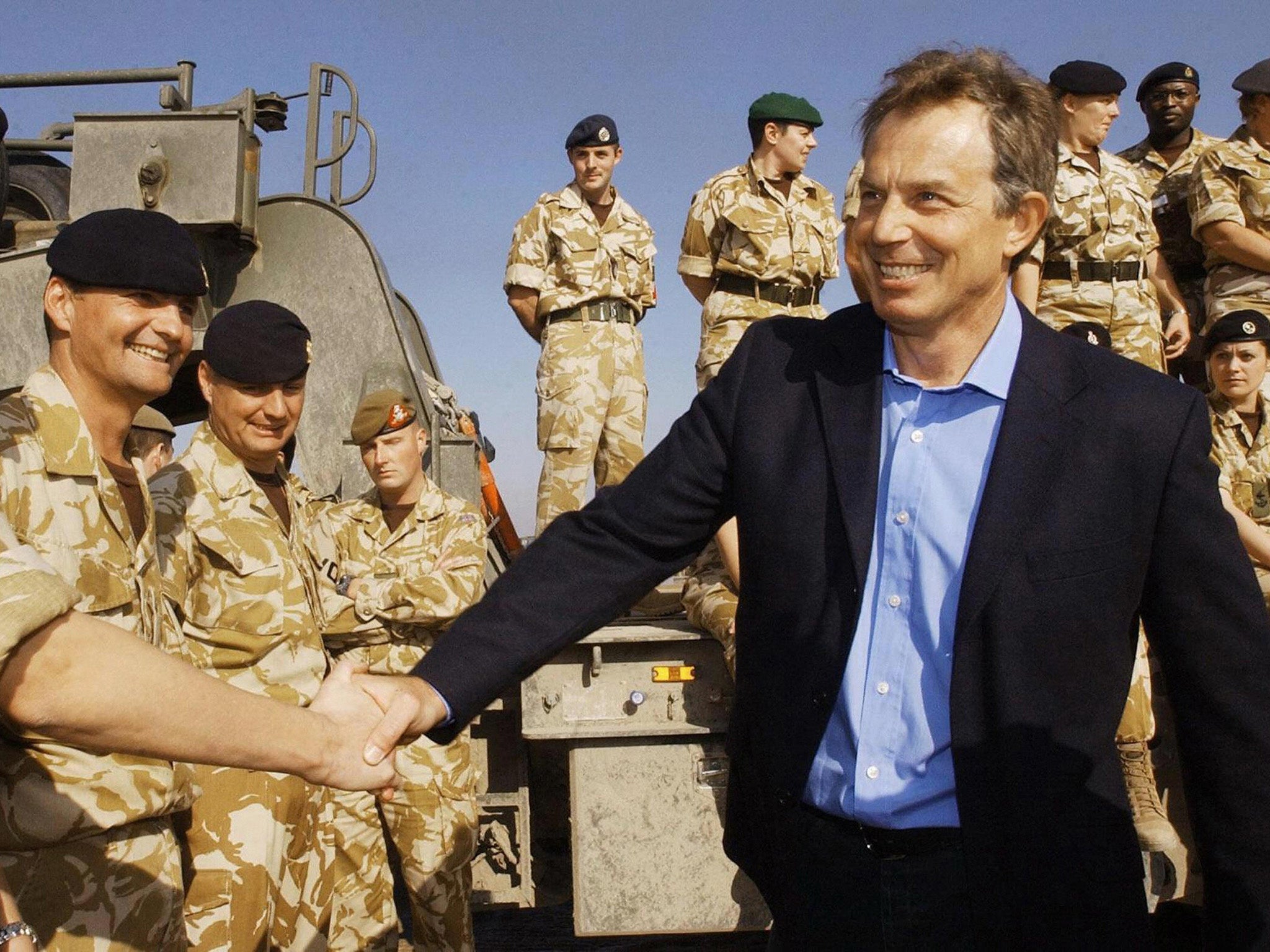I tried to arrest Tony Blair, but he isn't the only one to blame for the catastrophe of the Iraq War
Saying that the commanders were respecting the decisions of Parliament just won't cut it. Each of us has to make choices. But while it's socially acceptable to criticise a war, it's considered beyond the pale to challenge the armed forces

Six years ago, I tried to arrest Tony Blair.
His memoirs had been published and a book launch was scheduled at a Waterstone's in London. I planned to join other protesters in the queue, and we agreed that together we would attempt a citizen's arrest for crimes against peace.
In the end, similar behaviour at his book launch in Dublin led Blair to cancel his London event at the last moment. So, unfortunately, I'm still waiting to arrest him.
But in recent days, I've surprised friends and fellow activists by saying that we're all talking about Blair too much. With the Chilcot report out tomorrow how we respond matters as much as the content of the report itself.

I fear that we'll react by talking so much about Blair that we miss the chance to change practices and principles that oil the wheels of war. I would dearly like to see Blair in the dock, but we will make a major mistake if we put more effort into calling for Blair to face trial than into changing the systems and culture that led to the invasion of Iraq.
Whatever else we can blame Blair for, he did not invade Iraq single-handedly. Immoral decisions have power only because people go along with them. What of the generals, the admirals and the air chief marshals? The Chilcot report may be about to tell us that some of them advised against the war. If any of them did, they are the last people we should be cheering.
What sort of person, believing a war to be wrong, still gives orders to start it? Saying that the commanders were respecting the decisions of Parliament just won't cut it. Each of us has to make choices. But while it's socially acceptable to criticise a war, it's considered beyond the pale to challenge the armed forces.
When over a million people marched against the Iraq invasion in 2003, it was clear that British public attitudes to war had shifted significantly. But in the following years, the establishment responded by ramping up support for the armed forces. We now have Armed Forces Day and government plans to promote a “military ethos” in schools. We even have troops marching at the front of the LGBT Pride parade in London, which is supposed to be a human rights demonstration.
By elevating the armed forces beyond criticism, the government and their friends whip up support for war by proxy.
When it came to Iraq, Tony Blair could ignore the British people, knowing that British soldiers would carry out orders. Recently as 2011, a sailor, Michael Lyons, refused to pick up a gun after developing a conscientious objection to war. He spent several months in military detention for disobeying orders. The people who usually demand respect for our troops did nothing to promote respect for Michael Lyons' right to his views.
Militarism tells us that violence is the solution to conflict, that our national loyalties must come before our common humanity and that unquestioning obedience is something to be admired. Democracy depends on free expression. Militarism involves doing what you're told. The two are not compatible.
Of course Tony Blair should face trial. But a man who wants a war can only have a war if others agree to fight it. If we are to learn lessons from Iraq, let's learn that the world will be a much better place if we all stop doing what we're told.
Symon Hill is coordinator of the Peace Pledge Union.
Join our commenting forum
Join thought-provoking conversations, follow other Independent readers and see their replies
Comments
Bookmark popover
Removed from bookmarks